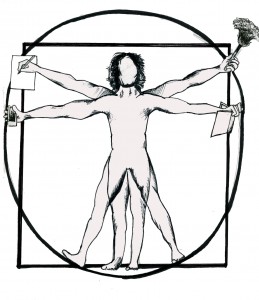
Targeted as a roadblock to success needing to be demolished, procrastination has been tied to laziness and wasted time. It’s a slacker’s defining quality.
If it’s so bad, then why does college continue to breed procrastinators by the thousands?
I think it’s because the skill of slacking, if mastered correctly, is actually productivity in disguise. This is something I can personally attest to.
I procrastinate daily and I’m still met with academic success. It’s a skill that, when utilized, has great productive potential. I follow some simple guidelines to get the most out of procrastination.
Major priorities come last

Nothing curbs unproductive slacking like a little jolt of panic, which is why the most important tasks should be left to the last possible second.
Common sense would say that the most important task should be the highest priority, but I beg to differ.
I personally do well under a little bit of pressure and, like a true procrastinator, I leave the biggest things until the eleventh-hour. I organize my list starting with the least important so I have some panic-driven motivation to complete those big tasks come crunch time.
Waste time efficiently
I float in between two kinds of slacking: the kind where I waste a Sunday eating handfuls of Cheetos and popcorn while watching Vines on YouTube, and the kind where I do everything but the tasks that truly need to get done.
The first kind of slacking, what I like to call “snack-slacking,” is not beneficial procrastination. I’m left with orange-stained fingers and snug-fitting jeans.
However, the second kind, “productive procrastination,” is the realm of laziness I aim for. Have a paper due tomorrow? I clean my apartment from top to bottom instead.
I am actually most productive when wasting time by doing other things. When the mere thought of having to do an assignment fills me with dread, I do everything in my power to avoid it.
Keeping busy with random tasks is the perfect excuse for putting off confronting the real task at hand, plus I still get a sense of accomplishment from completing other things.
Once I’ve hit my stride and my “productive-drive” is revved up, I face the major task head-on with renewed enthusiasm powerful enough to check it off my list.
Add more to achieve more
Procrastination is only a bad thing for me when my to-do list is too small. When I have only a couple of tasks to complete, I brush them off and they never end up getting done.
A beefy to-do list may seem stressful for some, but it has the opposite effect for me. I think the bigger the work load, the greater the chance for positive procrastination.
Instead of leaving one or two stragglers on my list, I bulk it up with an assortment of tasks and future deadlines that are quickly approaching.
When I see all those things that need to get done, I realize I need to quit slacking and make it happen.
Valerie Teegardin can be reached at [email protected] or on Twitter @vteegardin.








